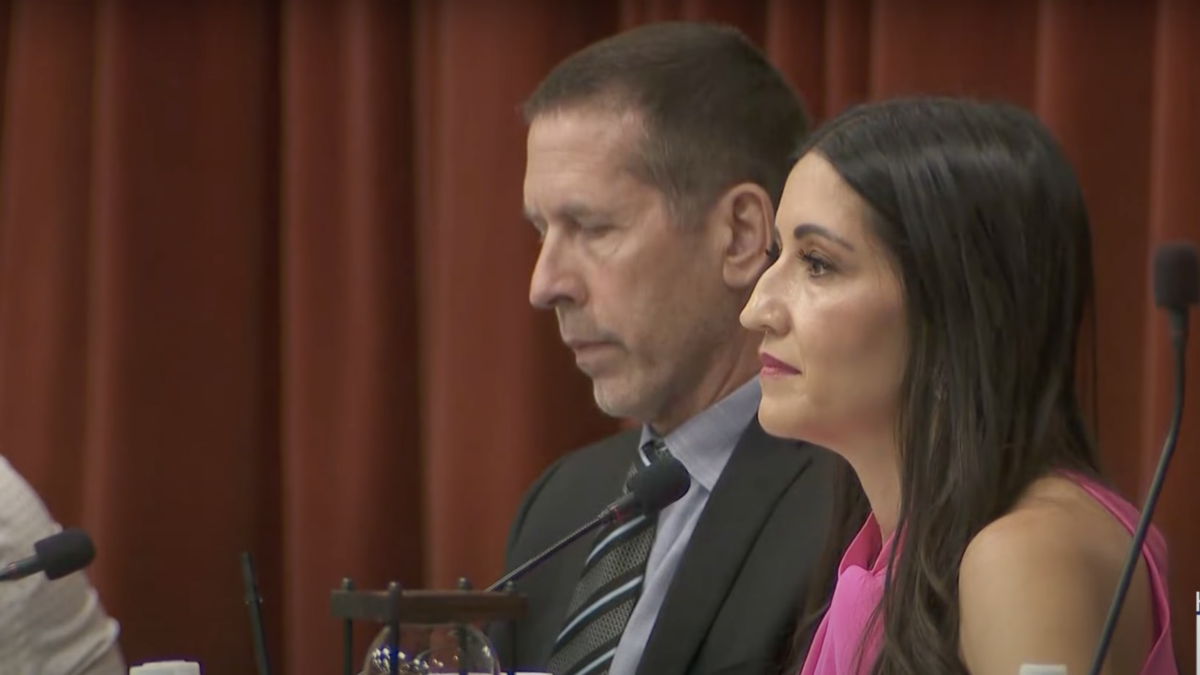
In response to Politico’s reporting Tuesday, confirming the authenticity of the most damning materials about Joe Biden found on an abandoned MacBook, an attorney for the owner of The Mac Shop told me, “I hate the fact that there are people who think this is actual news!”
Attorney Brian Della Rocca’s sentiment is understandable. Since the New York Post first broke news of the MacBook abandoned at John Paul Mac Isaac’s computer repair store, the veracity of the documents has been confirmed many times and neither of the Bidens have denied the authenticity of the documents.
Further, as The Federalist broke last month, the abandoned laptop contained a video revealing a second missing laptop — one Hunter Biden thought the Russians had stolen and that might provide fodder for blackmail. And, significantly, approximately nine months before the New York Post revealed the videos, emails, and text messages, the FBI had seized the laptop and thus had access to the video of Hunter relaying concerns about Russians pilfering his laptop.
The supposed standard-bearers of journalism, however, ignored the Post’s original story, other than to frame it as Russian disinformation, while Twitter locked the Post’s account and prevented the story from being shared. Later when the Daily Mail broke news and a video of Hunter Biden telling a prostitute that in the summer of 2018, after awaking from a near-overdose, he discovered his laptop missing, likely stolen by Russians, corporate media remained stilted in their coverage of the explosive story. They then reverted to their see-no-evil stance when confirmation came that the FBI knew about that stolen second laptop.
Yet, now that Politico’s Ben Schreckinger has a book out, “The Bidens: Inside the First Family’s Fifty-Year Rise to Power,” the media is making some noise about the scandal, albeit still muted, and while still pretending that some of the material may not be authentic.
Nonetheless, it is still a good thing for the Americans blinded by corporate and social media censorship, to finally learn the truth. But that is little consolidation to John Paul Mac Isaac, whom Della Rocca represents in the latter’s defamation case against Twitter.
In that lawsuit Mac Isaac alleged Twitter defamed him by justifying its decision to block the New York Post’s expose on the contents of the MacBook by declaring the material “hacked.” Given social and corporate media’s outing of Isaac as the owner of the store who had provided a copy of the laptop’s hard drive to Trump attorney Rudy Giuliani, Twitter’s factual assertion that the material was “hacked” branded Isaac a “hacker.”
The fall-out to Mac Isaac was swift, with him receiving threats and eventually being forced out of business. In an attempt to obtain some semblance of justice, Isaac sued Twitter in a federal district court for defamation.
Unlike most of the cases against Twitter, Section 230 provides the tech giant no protection for Mac Isaac’s lawsuit. While Section 230 grants “interactive computer service” providers for immunity for information posted by users, the basis of Mac Isaac’s lawsuit is on Twitter’s own allegedly defamatory statement, namely its branding of Isaac as a hacker, and not on something a user posted.
Second, while Twitter also has immunity for the good faith censorship of users’ speech, the defamation claim against Twitter does not rest on Twitter’s banning of the New York Post and coverage of the MacBook scandal. Rather, Mac Isaac’s claim is premised on Twitter stating, as a fact, that the material included in the articles was “hacked.”
Unfortunately for Mac Isaac, a federal court dismissed his lawsuit against Twitter on August 30, 2021. The court’s decision, however, represents a misinterpretation of Florida defamation law, which the court concluded applied in this case.
Florida law is clear that an individual need not be named in a publication in order to sue for defamation. Rather, it is well established in Florida that a plaintiff not explicitly named in a publication may sue for defamation if “the communication as a whole contains sufficient facts or references from which the injured person may be determined by the persons receiving the communications.” The test is whether “the average person upon reading [the]statements could reasonably have concluded that the plaintiff[] was implicated.”
Judge Beth Bloom, a Barack Obama appointee, however, nonetheless dismissed Mac Isaac’s lawsuit, holding that because he was pursuing a “per se” defamation claim, his identity needed to be determinable solely from Twitter’s post. Bloom’s reasoning is flawed for two main reasons.
First, the case law Bloom cited did not involve the question of whether the unnamed individual could sue for defamation per se. Second, and relatedly, the concept of per se defamation involves an entirely separate element to a cause of action for defamation.
To recover for defamation, a plaintiff must allege the defendant negligently (or with malice if the plaintiff is a public figure), made a false statement of fact, of and concerning the plaintiff, that harmed the plaintiff’s reputation, and caused damages.
Defamation per se involves false statements of fact considered so bad, such as that a person committed a crime or is unfit for their profession, that the court assumes that damages result and thus no proof of damage is required. That issue is entirely distinct from the question of whether Twitter’s branding of the materials as “hacked” was “of and concerning” Mac Isaac, i.e. falsely stating he was a hacker.
The trial court’s analysis improperly conflated those elements and in doing so ignored Florida law that allows an unidentified person to sue for defamation. While the decision is flawed, no decision has been made on whether to appeal the case, Della Rocca told me. “Appeals are extremely costly and because of Twitter’s conduct, Mac Isaac is now unemployed.”
Failing to appeal, however, will be costly too because in tossing Mac Isaac’s case, presiding Judge Bloom found Isaac must pay Twitter’s costs and attorney’s fees under Florida’s anti-SLAPP statute. The anti-SLAPP statute mandates an award of attorney’s fees and costs for a defendant if the person files a lawsuit “without merit and primarily because such person or entity has exercised the constitutional right of free speech in connection with a public issue.”
Della Rocca said they also believe the anti-SLAPP ruling is wrong on the merits. That “law was enacted to prevent the filing of frivolous lawsuits is now being used by social media titans to strong-arm the average citizen into submission,” he said.
“At this point,” Della Rocca added, “John Paul’s choices may be limited by economics instead of what is right.”
That principle seems to apply equally to the media’s decision to just now begin covering the Hunter Biden laptop scandal. There are books to sell, after all.









